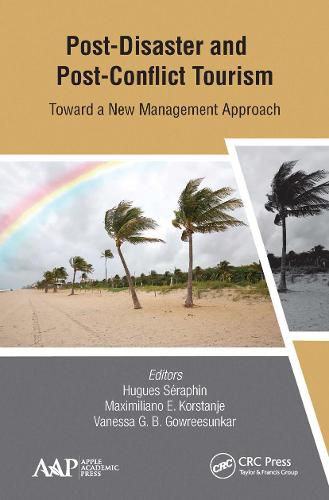Readings Newsletter
Become a Readings Member to make your shopping experience even easier.
Sign in or sign up for free!
You’re not far away from qualifying for FREE standard shipping within Australia
You’ve qualified for FREE standard shipping within Australia
The cart is loading…






Post-disaster and post-conflict tourism has recently emerged as a prominent topic of research and considers new risks that jeopardize tourism travel to destinations that have recently experienced climate-related disasters, civil conflicts, and other challenges. This volume presents a host of innovative strategies that could be adopted by post-colonial, post-conflict, and post-disaster destinations to encourage travel and tourism in these areas.
Policymakers are focusing their efforts on identifying and eradicating external and/or internal risks in order to protect the tourism industry in their regions, in line with a new spirit that is clearly orientated toward mitigating risks. This capacity of adaptation suggests two important things that are at the heart of this book. On the one hand, tourism serves as a resilient mechanism that is helping destinations in their recovery strategy. On another hand, this raises ethical issues related to tourism consumption.
$9.00 standard shipping within Australia
FREE standard shipping within Australia for orders over $100.00
Express & International shipping calculated at checkout
Post-disaster and post-conflict tourism has recently emerged as a prominent topic of research and considers new risks that jeopardize tourism travel to destinations that have recently experienced climate-related disasters, civil conflicts, and other challenges. This volume presents a host of innovative strategies that could be adopted by post-colonial, post-conflict, and post-disaster destinations to encourage travel and tourism in these areas.
Policymakers are focusing their efforts on identifying and eradicating external and/or internal risks in order to protect the tourism industry in their regions, in line with a new spirit that is clearly orientated toward mitigating risks. This capacity of adaptation suggests two important things that are at the heart of this book. On the one hand, tourism serves as a resilient mechanism that is helping destinations in their recovery strategy. On another hand, this raises ethical issues related to tourism consumption.